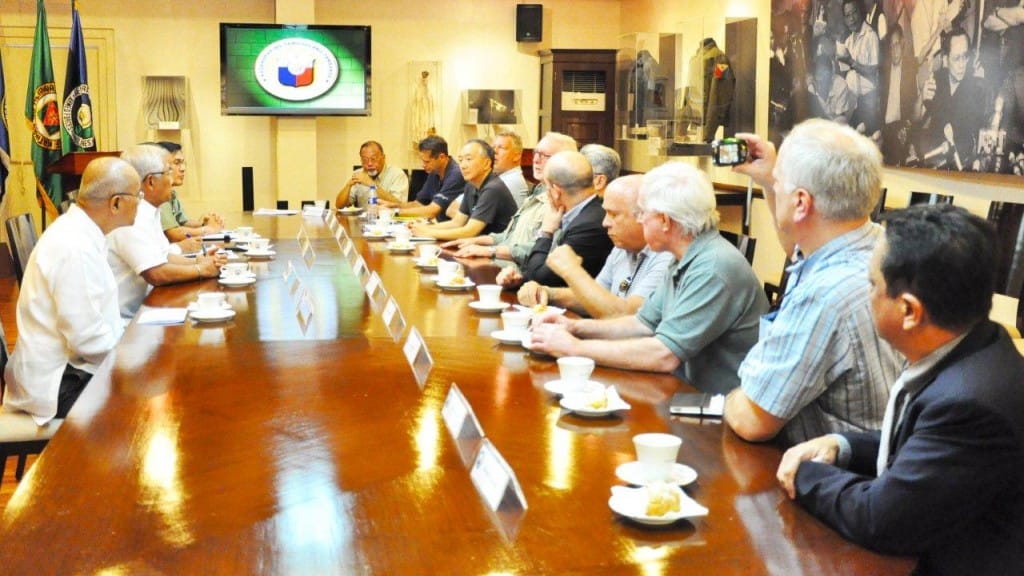Top Story
ULI Advisory Services Panel Offers Recommendations on Redeveloping Clark International Airport and Special Economic Zone in the Philippines
January 30, 2013
Panel Sees Potential for Thriving Aerotropolis to Boost Region
For more information, contact Trish Riggs at 202-624-7086; [email protected]
WASHINGTON (January 30, 2013) — The redevelopment of the former Clark Air Base in the Philippines, now the Clark International Airport and Special Economic Zone, has the potential to provide significant economic benefits as a thriving aerotropolis serving the entire region, according to an Urban Land Institute (ULI) advisory services panel convened to examine new uses for the former U.S. military facility.
Clark International Airport and Special Economic Zone, located on Luzon Island in the Philippines, is located approximately 40 miles northwest of Metro Manila. The base, which was vacated by the U.S. Defense Department in 1991, later served as an international airport and as a facility for the Philippine Air Force. It covers 14 square miles, much of which contains underused or obsolete space.
The Base Conversion and Development Authority (BCDA) of the Philippines sponsored the ULI panel, which visited the area on a five-day assignment that began January 21. In the days leading up to the presentation of the redevelopment recommendations on January 25, panel members toured the facility and conducted numerous stakeholder interviews, including a meeting with Philippine Secretary of National Defense Voltaire Tuvera Gazmin.
“The panel was well received at the highest levels of the Philippines’ defense department and other government agencies. Our meeting with the Secretary and his senior aides allowed the panel to thoroughly understand the interests of the defense establishment with regard to the redevelopment of Clark,” said ULI leader James DeFrancia, chairman of the advisory services panel and principal of Lowe Enterprises, Inc. in Aspen, Colo.
Among the panel’s recommendations for the base redevelopment:
- Focus on establishing a new airport facility of world class design and character that will serve as the gateway to the Philippines;
- In conjunction with the new airport, take steps to improve the ground transport system, including enhanced rail and road access;
- Ensure that development of the districts surrounding the airport property is undertaken in a coordinated and mutually supporting manner so as to create housing, commercial and industrial uses, as well as educational, recreational and tourist facilities;
- Implement a new, centralized management structure that insures comprehensive oversight and coordinated activity at all levels; and
- Obtain financing through a mix of techniques, including funds generated from the redevelopment of current facilities in metro Manila that could result in relocating government agencies to Clark (which could entail public-private ventures, concessions, fees and rents).
“The integration of the metro Manila urban core and the redevelopment of Clark can be key factors in the city’s success as a regional business hub. We are pleased to have worked with the BCDA on this important initiative,” DeFrancia said.
Through ULI’s advisory services program, the institute assembles experts in the fields of real estate and land use planning to participate on panels worldwide, offering recommendations for complex planning and development projects, programs and policies. According to Tom Eitler, vice president of the program, the strength of the program lies in ULI’s unique ability to draw on the knowledge and experience of its nearly 30,000 members, including land developers, public officials, academics, lenders, architects, planners and urban designers. “The panel process helps build consensus to support an effort that benefits the entire community,” Eitler said. “It’s often the fresh, outside view provided by the panel that achieves these results. We seek possibilities and opportunities that might have been overlooked. The advisory services panel program is all about seeing things a different way.”
Guidance and support for the panel’s work was provided by Carlos Rufino, chair of the ULI Philippines national council, and ULI Asia Pacific Senior Vice President and Executive Director John Fitzgerald, who worked with the BCDA to familiarize the agency with the ULI panel process and ensure a productive experience for the panel sponsor and the panelists.
ULI teams approach each project from all perspectives, including market potential, land use and design, financing and development strategies, and organizing for implementation. Each team proposes practical solutions that serve as a blueprint to move the project forward. The reuse of military bases such as the Clark is one of many types of land use projects evaluated by ULI panels; other assignments have included downtown revitalization; retail/entertainment development, inner-city neighborhood revival, affordable housing, brownfields development, public facility sites such as stadiums, arenas and convention centers, transit-oriented development, and resort and master-planned communities.
Past sponsors of ULI advisory services panels include: federal, state and local government agencies; regional councils of government; chambers of commerce; redevelopment authorities; private developers and property owners; community development corporations; lenders; historic preservation groups; non-profit community groups; environmental organizations; and economic development agencies.
About the Urban Land Institute
The Urban Land Institute (uli.org) is a global nonprofit education and research institute supported by its members. Its mission is to provide leadership in the responsible use of land and in creating and sustaining thriving communities worldwide. Established in 1936, the Institute has nearly 30,000 members representing all aspects of land use and development disciplines.
